How To Proactively Reduce Seasonal Allergies With HVAC Maintenance
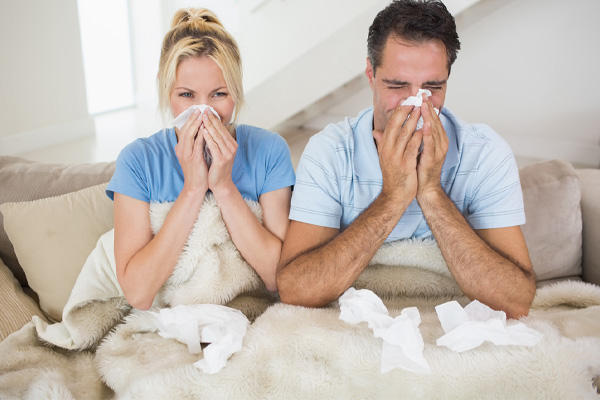
Millions of Americans are affected by allergies every year. Some people suffer far worse than others with allergies due to various environmental conditions and their own levels of sensitivity. If you’re someone who’s regularly affected by allergies or asthma, you should think about making a few changes to the living environment in order to increase your comfort. There is no need to continue suffering.
You have the opportunity to deal with this issue head-on by simply changing your habits and using the right forms of technology. When you’re proactive, you should be able to make it through the allergy season with few problems. However, the opposite is also quite true.
If you don’t take any action, you can experience allergies resulting from your HVAC system (HVAC allergies), and at far greater levels. Thus, to combat seasonal allergies and to ensure that your HVAC system isn’t working against you, take advantage of the information that follows.
Tips for Reducing Your Seasonal Allergies This Year
Contents
- Tips for Reducing Your Seasonal Allergies This Year
- Replace Or Clean Your HVAC Air Filters
- Use HEPA Filters in Your HVAC System
- Clean All Surfaces To Improve Indoor Air Quality
- Run Your HVAC Equipment Often
- Use a UV Light for Sanitation
- Seal Up Gaps &Cracks At The Windows & Walls
- Install A Whole House Humidifier
- Have Your HVAC System Professionally Maintained Annually
- Conclusion
- Call Point Bay Fuel For All Of Your HVAC Needs
This article will focus on how to turn your home HVAC system into an ally for your health.
Replace Or Clean Your HVAC Air Filters
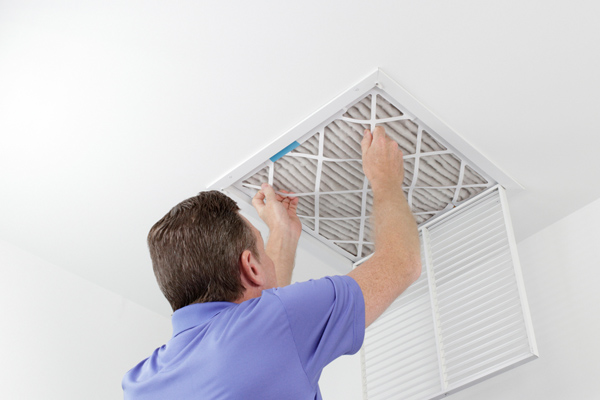
There are impurities all throughout the air around us that can be responsible for triggering respiratory issues and allergies. These impurities are virtually impossible to see. However, there are times when you may be able to see the light reflecting off them in sunlit windows.
HVAC systems have air filters for trapping dirt and dust in the air that moves through them. These air filters can help limit resident allergies and protect costly heating and cooling equipment. HVAC manufacturers recommend replacing HVAC air filters on a frequent basis to prevent blockages that lower efficiency and reduce the lifespans of their products. Be sure to replace your HVAC air filters at least once every one to three months, according to how fast dirt and debris collects on these units.
Use HEPA Filters in Your HVAC System
Many HVAC systems come with air filters that are very basic. They are only capable of capturing and collecting fairly large-sized particles. They do not have the ability to filter out pollen or any other smaller allergens given that they have a wide mesh. This is because HVAC manufacturers are largely focused on protecting their own units from airborne particulates that could cause equipment damage, rather than addressing smaller particulates that can actually lead to or trigger respiratory health issues.
If you want more protection for your respiratory health and fewer allergy attacks, consider upgrading to HEPA filters. A HEPA filter is a high-efficiency particulate air filter that has a tighter, smaller mesh, and the ability to trap allergens so that they are no longer being circulated throughout the indoor air. However, HEPA filters are known for additionally reducing overall airflow. This means that the HVAC system that uses this filter type often has to be modified to run properly. Speak with an HVAC company in your area to learn more about the best HEPA Filters for your home heating and cooling equipment.
Clean All Surfaces To Improve Indoor Air Quality
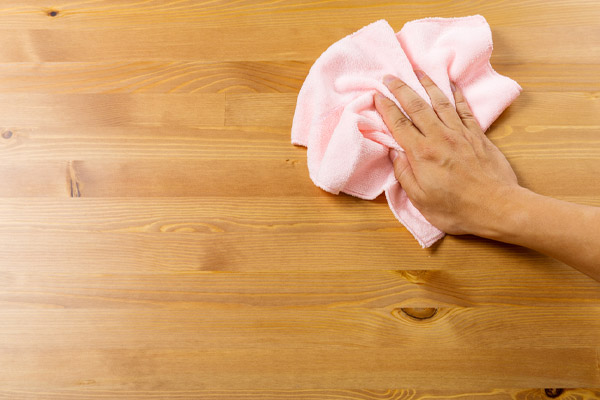
Allergens that enter into the home aren’t going to be airborne forever. They’ll eventually settle on the floor and other surfaces such as your bed, dresser, desk, etc. Regularly clean these surfaces off, especially in the rooms that you spend the most time in. Do not use a broom or simple feather duster as these tools only push particulates back into the air. Instead, you’ll want to suck this dust, pollen, dirt, and dander up with a high-powered vacuum cleaner. If you don’t currently have a powerful vacuum cleaner, use a damp cloth instead. Remove excess moisture from your rag so that it’s capable of picking dirt up. Wash your bedding once a week or as often as possible.
Run Your HVAC Equipment Often
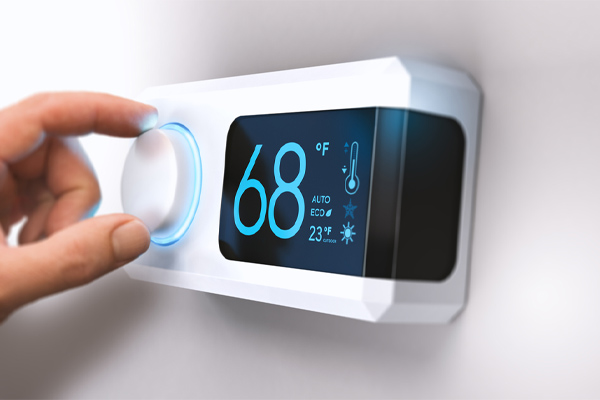
Everyone knows that stagnant water will eventually become bacteria-ridden and dangerous. This water can be used by insects as a breeding ground and bacteria thrive in it. Stagnant air can also be hazardous. If the air in your living environment isn’t moving, pollutants won’t be forced out, and they can’t escape. Instead, they accumulate until unhealthy levels are reached.
One of the best ways to improve ventilation in your home is by turning the air conditioner on periodically even if you don’t really need cool air. This will move the indoor air as the system pumps fresh air from outdoors and releases the stale air inside your home at the building exterior. You should do this every day for at least 20 minutes.
Use a UV Light for Sanitation
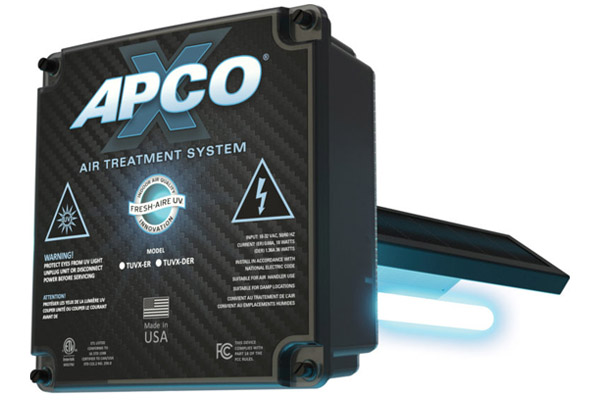
Ultraviolet (UV) light has sanitizing properties. When we sundry our clothing, this makes the water evaporate quickly in the sun’s heat. It also kills bacteria with UV lighting and makes our garments smell a lot fresher. UV light is able to destroy dangerous pathogens on a molecular level. Thus, many households use concentrated UV lighting as part of their water treatments. Small-sized UV devices can additionally be installed in your home’s HVAC system to eradicate any allergens that might be growing inside this equipment. This will ensure that contaminated air isn’t being moved through the house by your air conditioner. Using this setup can greatly improve your home’s indoor air quality.
Seal Up Gaps &Cracks At The Windows & Walls
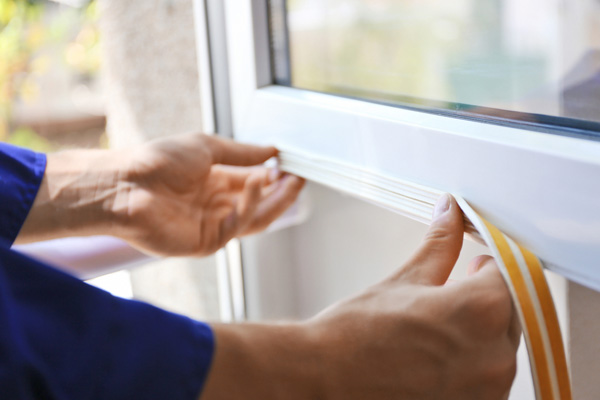
Simply shutting your windows and doors might not be enough to keep pollen from coming into your home. Your home may have gaps and cracks along the sides of certain windows and doors. Check the building to see if these narrow openings are letting unfiltered outdoor air in. If you find gaps, be sure to seal them up with weatherstripping, caulk, or even spray foam. You should additionally ensure that all windows and doors are shut throughout the peak pollen hours during the early morning.
Install A Whole House Humidifier
Get a better understanding of the environmental conditions of your home’s interior by taking a measurement of indoor humidity levels. This should ideally be at about 40 percent. If the interior of your home becomes too dry, allergens will remain floating in the air far longer, and they’ll have a greater ability to trigger allergic reactions among residents who are sensitive to them. If it becomes overly humid, you can deal with major mold and mildew issues. Have a whole-house dehumidifier or whole-house humidifier installed as necessary for maintaining an acceptable level of humidity indoors.
Have Your HVAC System Professionally Maintained Annually
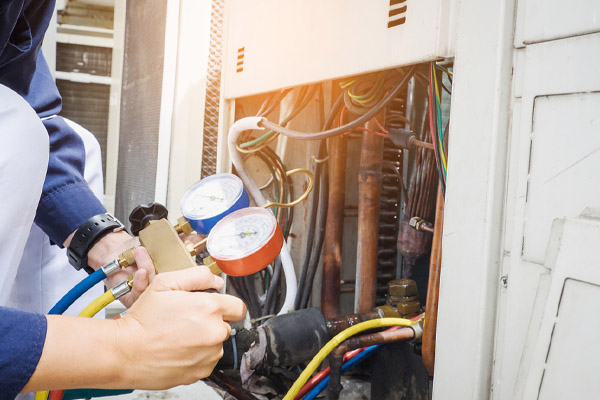
Allergies are a major issue that you won’t be able to tackle entirely on your own. Speak with a doctor if your allergic reactions are severe. You can also work with HVAC contractors to boost your home’s indoor air quality. Be sure to have your HVAC equipment professionally cleaned and maintained at least once annually. This way, you can breathe easier and enjoy heating and cooling equipment that’s both efficient and reliable.
Conclusion
Springtime allergy flare-ups can be the worst. Allergens like pollen are everywhere during this time. Stay safe by shutting the windows and doors in your home, keeping everything clean, and filtering the indoor air with your HVAC system. You can also call an HVAC company to have a HEPA filter installed, for UV light installation, or for routine maintenance service. HVAC companies will do all that they can to help you stay comfortable by improving your air quality.
Call Point Bay Fuel For All Of Your HVAC Needs

Point Bay Fuel provides reliable HVAC services all throughout Ocean and Monmouth County, New Jersey. Our technicians are highly trained and experienced, and they’re capable of providing reliable HVAC installations, maintenance, repairs, and more. They’re knowledgeable, and they’ll always get the job done right.
You also get the most competitive prices for your HVAC needs in Ocean and Monmouth County, New Jersey when you work with us. You can schedule our maintenance services to improve your indoor air quality by limiting airborne allergens, improving the efficiency of your equipment, and more. When it comes time to replace your HVAC equipment, we can help you choose the best models for your budget, your household, and your goals. Everything that we do is backed by our solid guarantee. Call Point Bay Fuel now to set up your appointment. We offer in-home consultations. Call now!
Contact us now by calling (732) 349-5059 to speak to one of our home comfort specialists!
